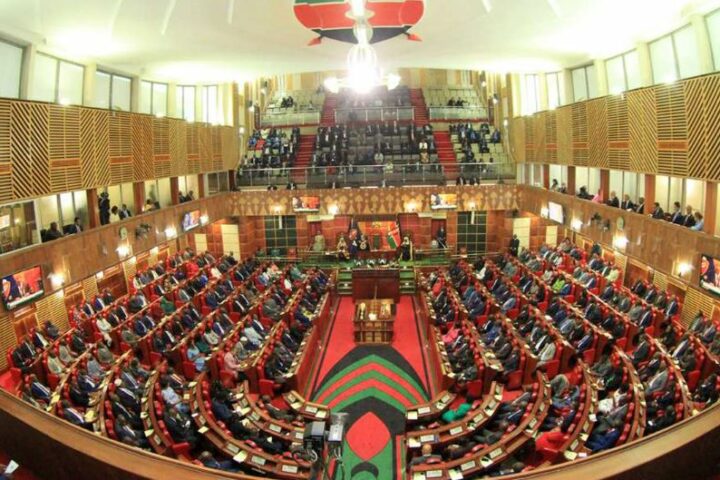 Since the legalization of online gambling in Kenya, several regulatory changes have impacted the iGaming market.
Since the legalization of online gambling in Kenya, several regulatory changes have impacted the iGaming market.
In 2021, the country introduced a 7.5% excise duty on all betting stakes, including via online platforms, which still affects operators and players significantly.
Despite these and many other regulatory hurdles, online betting in Kenya has transformed into an industry with rapid expansion.
In 2024, the local market is driven primarily by increased mobile and internet penetration.
This factor alone contributes significantly to an estimated 10-15% of annual revenue in comparison to the total gambling industry revenue in Kenya.
The Latest Regulatory Changes in Kenya’s iGaming Market
Are you aware of the latest regulatory changes concerning every legitimate online casino in Kenya? Here is what you need to know, along with the latest interesting facts about the industry:
- The government has implemented stricter monitoring of M-Pesa and other digital payment systems, to promote responsible gambling and prevent money laundering.
- New laws limit gambling advertising, particularly during specific hours. Daytime ads are restricted to protect minors and reduce excessive gambling exposure.
- The BCLB has enforced stricter requirements for operators, including mandatory local incorporation and regular audits to ensure compliance.
- In 2021, the government reintroduced a 7.5% excise duty on all stakes placed on betting platforms.
- iGaming operators are subject to a 30% corporate income tax on their profits.
- A 20% withholding tax is applied to players’ winnings. This tax, which had been removed in 2020, was reinstated in 2021.
- Operators must pay the BCLB licensing fees. These fees vary depending on the size of the company and the services offered, but they can reach millions of Kenyan shillings annually.
In 2024, new entrants offering online betting in Kenya are met with an array of complexities for acquiring and maintaining licenses from the Betting Control and Licensing Board (BCLB).
Examples include local incorporation taxes, financial stability checks, and compliance with strict anti-money laundering (AML) and know-your-customer (KYC) policies.
Operators also face high licensing fees, ongoing audits, and compliance with taxation laws. The BCLB conducts rigorous background checks and requires regular reporting to ensure adherence to responsible gaming regulations. Yet, these are only some of the latest hurdles.
The expanding iGaming market of Kenya also offers a lot of opportunities.
Opportunities from an Expanding Online Gambling in Kenya
Current trends show an increasing demand for B2B services related to high-quality live mobile games. This leads to an increase in the number of offshore companies entering the online casino market.
For example, for an in-depth look at the leading platforms in the region, check out Online-casinos.com’s guide to Kenya’s iGaming market, where players can find top-rated options.
Fintech companies also find the market very appealing in 2024. Thus, they keep offering more innovative payment solutions like cashless transactions and cryptocurrencies, although the latter is not currently a legal tender in Kenya.
These are the other significant trends:
- As of 2023, Kenya had over 60% internet penetration, with mobile phone penetration at 90%.
- Mobile money services like M-Pesa are used by over 30 million people and are among the favorite brands of Kenyan women.
- Over 75% of the Kenyan population is under the age of 35, making it one of the youngest populations in the world.
- There is a hidden potential for further growth as more regions gain internet access and more players adopt online gaming via Starlink’s new satellites.
- According to Statista, the Kenyan online casino market has a projected market volume of US$ 55.65 million in 2024.
- There is a rising popularity of eSports and live dealer games, creating new opportunities for local and offshore operators.
A careful evaluation of all risks vs. rewards is required.
There is a delicate balance that new operators must strike between capitalizing on the market’s hidden potential and leveraging regulatory hurdles.
For instance, according to a publication of the National Council for Population and Development, Kenya’s youth population is projected at more than 22.3 million in 2030.
This means that a new casino operator could have a solid reason to adopt long-term strategies focusing on mobile-first gaming experiences.
The Bottom Line
There is a surge in technology in 2024. Kenya will remain an attractive market for operators and investors, thanks to various innovations that can be used in the online casino industry.
VR betting on eSports, AI tools for analytics and player behaviors, and lightning-fast crypto payments are only a few examples.
The role of regulators and other third parties involved, such as the media, will also play a significant role in this market expansion – something that was noted even a few years ago.
For instance, the Chief Executive Officer and Secretary to the Media Council of Kenya (MCK), David Omwoyo Omwoyo, said in his intro to the Media Monitoring Report from Summer 2021:
“As a regulator, MCK is committed to protect the consumers from harmful content and the effects of gambling as well as ensuring professionalism in the media industry.”
It can be predicted that despite regulatory hurdles, Kenya’s iGaming market will continue to grow due to the reasons mentioned above. However, this wouldn’t be possible without some regulatory reforms to support this market expansion.








